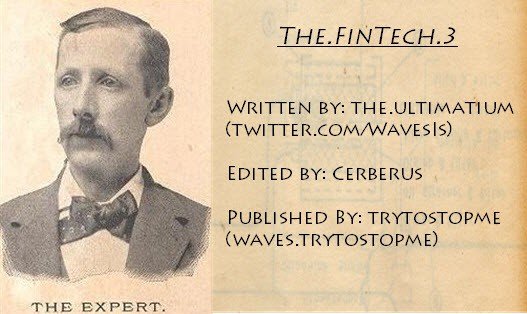The Bitfinex Episode: One More Reason the Future Will be Decentralized
Crypto-currency savvy investors along with the coder/developers will help make it happen.
Blockchain technology is finding use cases across many industries. It is increasingly becoming a part of governmental agency discussions as well as traditional investment ideas. For instance, publicly traded company Overstock is exploring ways to move stock trading onto blockchain based technology and Winklevoss Capital is being touted as the world’s first licensed bitcoin and ether exchange, offering services to the well-heeled Wall Street Investor.
Additionally, the global economy is in a state of extreme flux. Governments and Companies are offering "negative" yield bonds and the older generations are hanging onto traditional investment vehicles. The amount of capital invested in derivative markets alone, exceeds staggering valuations and ensnares not only the individual investor, but the pension plans of prominent governments and companies alike.
The Whippersnappers and the Elders
The generations after the baby boomers are more accepting of the risks and benefits associated with crypto-currencies and other alternative financial technologies because they have grown up with this chatter and have seen it implemented. The financial crisis has created significant skepticism among younger adults and created concerns that the established financial markets and institutions are on the verge of collapse. The tide has already begun to turn as more and more articles are being published in financial newspapers, magazines, blogs and other mediums dealing with $BTC, $ETH, $Waves, and other alternative financial technologies.
Legal Framework & Breached Systems
There have been two legislative acts in the US addressing crypto-currencies. Most notably the recent Miami, FL case that the judge threw out due to the fact that $BTC did not fall under the category of a monies because it was backed by no authority/sovereign nation.
NC and other states have passed laws attempting to define whether crypto-currencies should be treated as assets, currencies, or some other category. Tax implications are unclear.
Bangladesh’s US Fed Reserve account was breached using SWIFT codes and billions of dollars syphoned out of the Fed to Southeast Asian countries/accounts.
The US healthcare database was breached and millions of people’s personal medical files were released.
The IMF did a research report on how to deal with this upcoming wave (no pun intended) of decentralized monies and systems and how to regulate them.
A trustless decentralized system with attributes that $Waves plans to implement has the potential to reengineer global finance.
While regulated industries, financial sectors, healthcare sectors and banking will adopt blockchain technology, it will be the newly invested/investing Gen X, Gen Y & Millennials who will seek both intangible and wealth. Not equities or bonds but crypto-currencies and tokens that can be spent in a borderless paradigm. Not fiat money or a checking account but precious metals, which are at relative all-time lows.
Simply put, as the older generations move out of the investment world, the newer generations will carve a new financial landscape that is both decentralized and borderless.

Brought to you by TheFinTech3
@the.ultimatum (twitter.com/WavesIs)
@cerberus65
@trytostopwaves (waves.trytostopme)
Good Stuff!
Thank you! For your up-vote and feedback!
Again thank you for your support.